Officers Prevent Iranian Women Without Hijab From Entering Subway
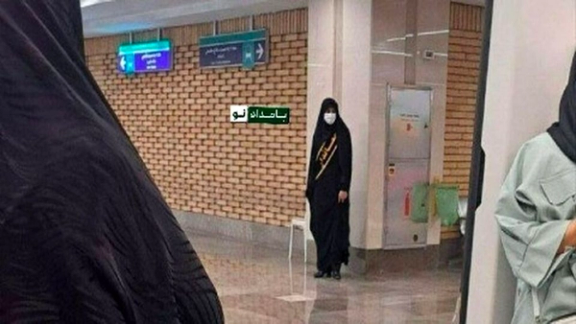
In a bid to deter the droves of women rebelling against mandatory hijab, the regime in turning to new forms of surveillance and public humiliation tactics.

In a bid to deter the droves of women rebelling against mandatory hijab, the regime in turning to new forms of surveillance and public humiliation tactics.
Iran’s state TV published a video in which Tehran subway officers do not allow women without the mandatory hijab to enter.
After the statements by Supreme Leader Ali Khamenei about the mandatory hijab on Tuesday, a new round of the regime confrontation with those who do not want to wear hijab has begun.
Social media users have reported that some officers tasked with threatening those without hijab are stationed in metro wagons and the entries to the subway.
Meanwhile, police in Iran announced on Saturday that it is going to use "smart" technology in public places to identify and then punish women who do not wear hijab.
In a statement, police threatened that they would take action to identify those breaching the regime laws by using tools and smart cameras in public places and thoroughfares.
Islamic Republic's Police Chief Ahmad-Reza Radan confirmed in an interview with state TV: “From next Saturday, people who remove their veil will be identified by using smart equipment.”
Warnings will be issued before women are called to court.
Hundreds of women have been seen unveiled in public places since the death of Mahsa Amini in police custody for ‘improper’ wearing of her hijab. Others have been seen burning their veils in defiance, and cutting hair, in a rejection of the regime’s tough Islamic laws.
Although there is no accurate count but over the past four decades hundreds of thousands of these women have been arrested, fined, or jailed by authorities.
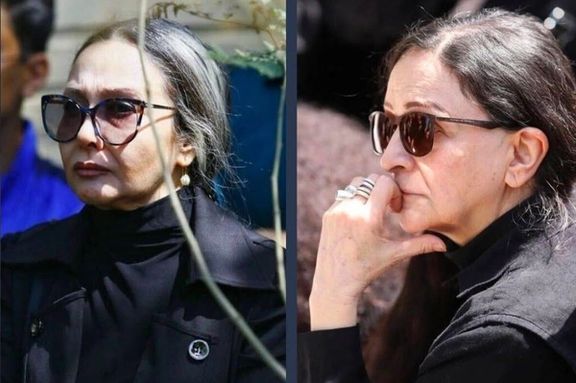
Three prominent actresses defiantly appeared ‘bare headed’ at the funeral of a colleague Friday despite authorities’ warnings of serious consequences for ‘hijabless’ women.
Katayoun Riahi, Golab Adineh, and Fatemeh Motamed-Aria attended the funeral of popular film director, Kiumars Pourahmad in Tehran, who tragically ended his own life earlier this week.
Angered by such open defiance, hardliners on social media are calling for their punishment to set an example for others while taking their cue from Supreme Leader Ali Khamenei’s speech earlier this week. Officials, lawmakers and regime clerics are vowing to re-impose the hijab rules that women have increasingly been defying in the past six months.
“Start from celebrities, not the hijabless girls on the street because these celebrities are their role models,” a hijab promoter said in a Twitter post with the ‘hijabless’ images of Riahi and Adineh at the funeral.
Riahi, 61, was the first among Iranian female artists to express her solidarity with the Mahsa Movement amidst the nationwide protests in September by sharing her photo without a veil on Instagram. “Iranian women are each other’s voices,” she said in her post.
A man wearing a shawl over his head at a protest rally outside the National Library
The award-winning actress fled in time to avoid being arrested by security forces who raided her house but was arrested in November after living in hiding for two months.
Riahi was subjected to huge phycological pressure during her trial in December to “apologize’ for her deed but had to be taken to hospital from the court after fainting and losing her consciousness in front of the cameras filming the proceedings, apparently for airing on the state television.
Kazem Sadighi, head of the regime’s chastity outfit, the headquarters for Promoting Virtue and Preventing Vice, said Saturday that the “hijab criteria” drawn up by his organization has been sent to the president, parliament and the judiciary and that it will be communicated to government offices to enforce after being finalized.
Katayoun Riahi telling Iran International TV in November that she had never believed in hijab to “remove” it now.
In their sermons this Friday, the ultra-hardliner Friday imam of the religious city of Mashhad, Ahmad Alamolholda, threatened again that “people” may take the matter into their own hands against women who defy the hijab if authorities did not “have plans” to deal with “hijablessness”.
Katayoun Riahi telling Iran International TV in November that she had never believed in hijab to “remove” it now.
Khamenei and other officials including Chief Justice Gholam-Hossein Mohseni Ejei have repeatedly accused those opposed to compulsory hijab of working for “enemy” intelligence services.
At a meeting with state officials Tuesday, Khamenei claimed that foreign intelligence services were encouraging Iranian women to disobey mandatory hijab. He also claimed that “the enemy” is working according to “a plan and plot” and urged authorities to have their own plan for dealing with the issue of hijablessness.
While claiming that most Iranians agree with enforcing compulsory hijab, Ejei’s deputy, Mohammad Mosaddegh, repeated Khamenei’s accusations Thursday and said the judiciary will “take serious action” against “hostile” individuals who are “cooperating with foreign intelligence services to promote hijablessness”.
The police in several cities including Tehran have been summoning women whose ‘hijabless’ images were picked up by CCTV cameras. The police have also asked citizens to report the plate numbers of cars in which passengers are ‘hijabless’ and threatened to punish them “in accordance with the law”.
The measure has backfired and caused chaos in the system as many citizens have reported the plate numbers of cars whose passengers wore hijab, particularly the long black veil known as chador that the regime has always promoted as the measure of excellence in hijab abidance.
On Friday a small group of male and female members of the National Library protested outside the library against the decision to cancel the membership of ‘hijabless’ women.
Men who had participated in the rally wore headscarves in protest to compulsory hijab and after chanting “Woman, Life, Freedom” women threw their headcovers into a fountain.
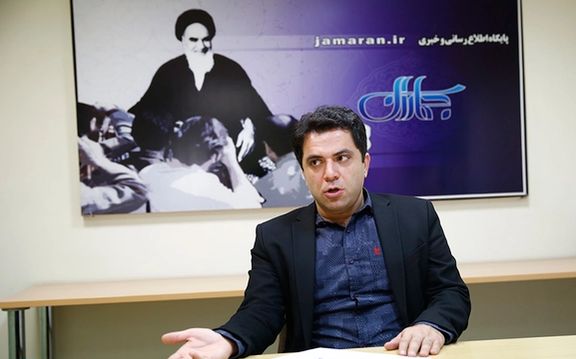
An Iranian lawyer says some protest detainees, who were earlier pardoned by Supreme Leader’s amnesty, have been summoned to face trials.
Ali Mojtahedzadeh, wrote in Etemad daily Saturday that not only the cases of many of the defendants, who were granted amnesty in February, are not closed but they face more judicial proceedings, and conviction.
“Unfortunately, it seems that a number of the middle ranks in the judicial system close their eyes to the amnesty and insist on pursuing these cases,” he added.
In early February, Supreme Leader Ali Khamenei agreed to pardon tens of thousands of prisoners, including many detained during recent protests.
A week later, Iran’s Attorney General Mohammad Javad Montazeri said Khamenei’s amnesty is not for everyone, adding that the people who created fake deaths and caused damages during the protests will not be pardoned and must be held accountable.
Several activists including Iranian human rights defender, Narges Mohammadi, slammed Khamenei’s prisoner amnesty as a sham to feign compassion to the Western world.
In a letter written to the UN Human Rights Council in Geneva from inside Tehran’s notorious Evin Prison, she said the amnesty reflects “politics of the Islamic Republic [which] is based on lies”.
Mohammadi also added that she is ready to testify against the authorities regarding widespread torture, harassment and abuse of prisoners.

The UN special rapporteur on Iran has expressed solidarity with the Iranian hunger striker who has camped outside the British Foreign Office for 44 days.
Javaid Rehman, the UN human rights rapporteur, Friday visited Vahid Beheshti who has been campaigning for the UK to proscribe the Islamic Revolutionary Guard Corps.
Beheshti has been battling the bitter winter outside the UK Foreign Office to raise awareness for the need to designate the IRGC responsible for the deaths of hundreds of Iranian citizens since September.
In his third letter on Monday the British prime minister, he reiterated his desire to meet PM Rishi Sunak, adding that “my body grows ever weaker, yet internally, I grow ever stronger in my conviction that this is the right thing to do.”
Beheshti called his request to the British government "simple and at the same time, very important" emphasizing the urgency of proscribing the IRGC.
He said the designation urgently needs to happen, not only for the people of Iran who yearn for democracy, but also for the people of Britain and "the values we uphold".
“As long as we continue with our appeasement policy, the IRGC will continue with their hostage taking policies,” he said. “They only understand one language, pressure and strong leadership.”
Beheshti has not eaten since February 23 and lost a large amount of his body mass. In the past days, a group of other Iranians also joined him and set up tents next to him.
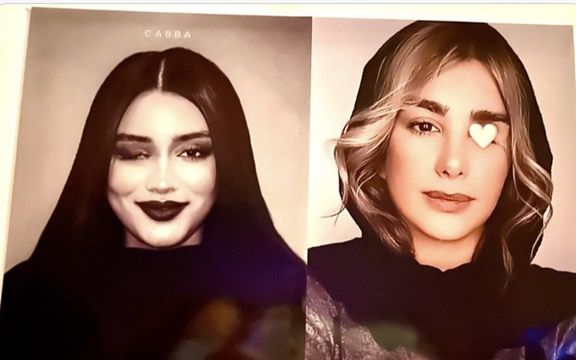
Hollywood star Angelina Jolie has expressed solidarity with dozens of Iranians who lost their eyes to police gunfire during recent antigovernment protests.
The American actress and director published pictures of Elahe Tavakolian and Zanyar Tondro, two young protesters who were shot in the eye during nationwide protests in Iran, on her Instagram page on Friday, saying “You aimed at my eyes, but my heart is still beating.”
Jolie further added in the caption that “Thinking of the young Iranians who have suffered eye injuries protesting the killing of Mahsa Amini, like Elahe Tavakolian and Zanyar Tondro. Many survivors have lost sight in one or both eyes. It’s a reminder of the price young Iranians are paying in their struggle for rights and freedoms.”
The Iranian regime used overwhelming force against protesters demanding secular democracy, killing more than 500, injuring thousands and jailing more than 20,000 mainly young protesters.
Earlier, Iranians launched a Twitter storm in support of Tondro, an 18-year-old man who along with his father, left Iran for treatment in Europe in the past weeks, but after their boat capsized, he was arrested by the Turkish police and taken to a refugee camp in the southwestern city of Mugla.
Elahe Tavakolian, a PhD student lost her eye to shotgun pellets fired at protesters by regime security forces.
Many protesters have been shot in the face and have lost one or both eyes during the protests that are still underway after more than six months.
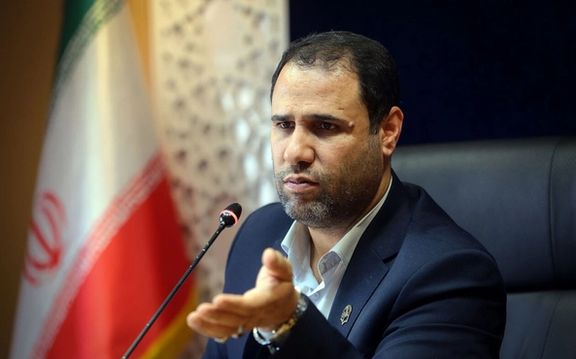
Iran's acting education minister Reza-Morad Sahraei, a life-long Basij operator, has threatened protesting university students and professors with expulsion.
In an audio recording of Sahraei’s meeting at Farhangian University, a public teacher training university where he currently serves as rector, Sharaei says this university is more important than the Revolutionary Guard's universities in Iran and everyone who speaks out against the regime will be identified and expelled.
He said "the red line is the existence of the regime," and anyone who crosses it would not have a place in the university. Anyone who took part in the recent protests, even minimally, will be identified in the near future and will be expelled, he said in the leaked audio. “Professors who would not move in the framework set by the regime will not have a place in this university,” he said, adding, “Record this and tell everyone about it.”
"The regime wants to train forces for itself in Farhangian University, and when someone does not accept the system, they do not belong here," he claimed.
The interim minister has not yet been approved in his post, but his appointment seems in line with President Ebrahim Raisi’s policy of further crackdown on dissident students.
Sahrai, who is already under aspersions about his former position as a tenured professor at the Allameh Tabataba'i University, faces numerous controversies about his academic credentials. He is one of those people who were crowned as professors at Iran’s high-ranking universities thanks to links to the regime’s inner circles.
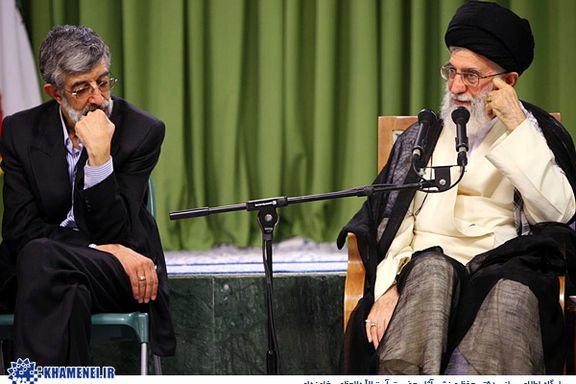
He is closely connected to former parliament speaker Gholam-Ali Haddad-Adel and served as his right-hand man at the Saadi Foundation, a “cultural center” that is tasked with promoting Persian language among non-Persian speakers. Sahraei is the man who was influential in assigning many people as the Islamic Republic’s cultural attachés in several embassies under the guise of Persian teachers.
Although Sahraei’s resume may portray him as a true academic, he is really a regime agent in camouflage of a university professor. He reportedly holds a doctorate in linguistics from Allameh Tabatabai University and is a full professor there, but several graduate students who were forced to work on their theses with him as their advisor or supervisor told Iran International that he never helped them in in their academic endeavors and only showed up at the defense presentation sessions to get the credit.
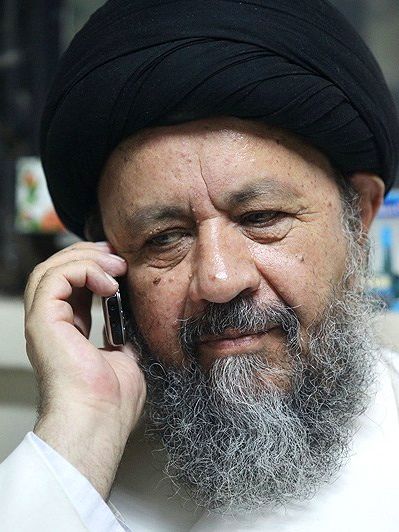
Sahraei was also the man in charge of implementing policies of Sadreddin Shariati, the controversial head of Allameh Tabatabai University who embarked on strict sex segregation at the university in early 2010s. According to information obtained by Iran International, Sahraei is also mired in numerous cases of plagiarism, including his article about “morphological paradoxes.”
Serving as a loyal regime operator for many years, Sahraei is appointed as the new education minister to carry out harsher crackdown on students who have revolted against the Islamic Republic or voiced support for the popular uprising ignited in September 2022 following the death in custody of 22-year-old Mahsa Amini.
Earlier in the month, the ministry of higher education said institutions under its coverage will no longer offer educational and other services to students who do not abide by hijab rules. “All universities and higher education institutions under the coverage of the ministry of sciences, research and technology will not be obliged to offer educational, welfare and other services to the few students who do not abide by the laws and regulations of the universities in this regard,” the ministry said in a statement April 3.